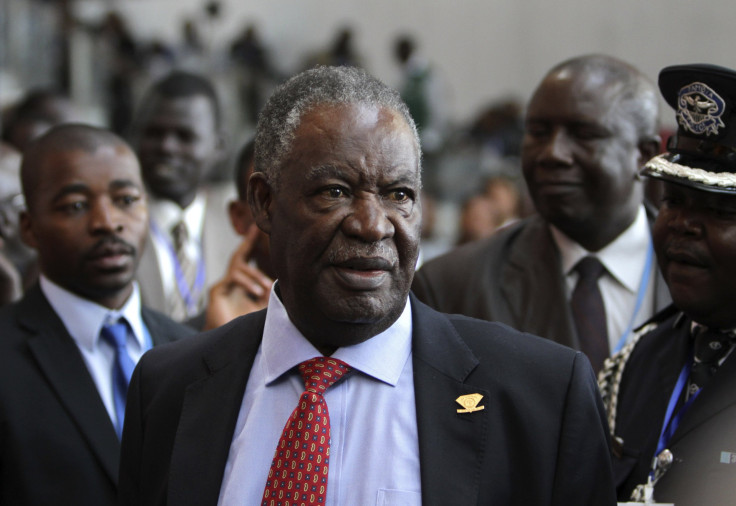A Slide Backward For Zambia As Government Moves To Curtail Press Freedom

The government of the southern African country of Zambia has tightened its grip on independent media, reversing recent progress on press freedom and alarming human rights advocates around the world.
Last year, the international organization Reporters Without Borders ranked Zambia 72 out of 179 countries in terms of press freedom. That was a fairly big jump up from 2012, when the country got a rank of 86. But, recent events suggest that Zambia is now headed backward as independent media workers face mounting risks and criticizing the government is becoming increasingly dangerous.
Two independent news websites, Zambian Watchdog and Zambia Reports, have been forced to relocate abroad and were recently blocked domestically by the government.
This week, Zambia Reports cited sources claiming that Zambia was even considering blocking Facebook and Twitter after noticing that forbidden articles were still filtering into the country through these social media platforms.
Zambian President Michael Sata has also sued a major newspaper called the Daily Nation on charges of defamation, and the case has been adjourned to October 3.
Several individual journalists have also been targeted, including Zambian Watchdog reporter Thomas Zyambo, who was detained on charges of intent to publish anti-government materials. Wilson Pondamal, a reporter for The Post, a major newspaper in Zambia, was arrested while traveling home from his job this month, and has since fallen ill and is hospitalized.
These incidents are raising alarm bells about Sata and his Patriotic Front party. The president's 2011 election broke the 20-year reign of the Movement for Multi-Party Democracy. And, although Sata has presided over some successful privatization programs and an uptick in foreign investment, he has also shown autocratic tendencies and professed admiration for Zimbabwe's President Robert Mugabe.
In Zimbabwe, Zambia's southern neighbor, independent media outlets struggle to make their voices heard. The airwaves are controlled by the Zimbabwe Broadcasting System, which is loyal to the ruling party. Citizens have to turn to channels based abroad -- typically in South Africa -- in order to avoid the heavy propaganda that pervades domestic programming.
However, unlike in Zimbabwe, where the most recent national election erupted into deadly violence, Zambia has enjoyed relative stability since its independence in 1964. It is the continent's biggest copper producer and has a GDP of $20 billion. Annual economic growth hovers around 6 percent.
Despite these achievements, about 60 percent of the population lives below the poverty line, especially in rural areas. Sata was elected on a platform of making Zambia's growth more broad-based, but that promise has yet to be realized.
Now, as domestic media workers feel the pinch of an increasingly autocratic administration, international organizations are calling for Zambia to reverse its clampdown in order to avoid deepening crises.
"It is alarming to see a democratically elected government determined to silence and intimidate its critics," said Sue Valentine, Africa Program Coordinator for the Committee to Protect Journalists. "A critical, independent, and investigative press is the lifeblood of any democracy."
© Copyright IBTimes 2024. All rights reserved.











